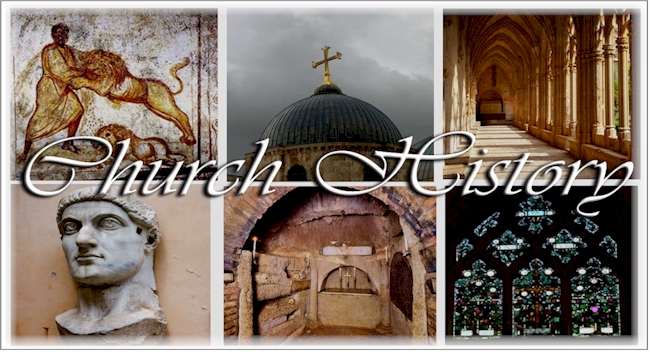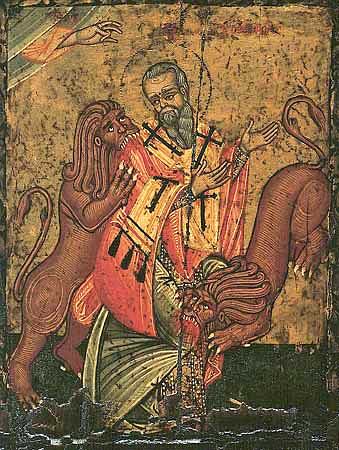|
|
|
Martyrs of the Early Church

 A
Christian martyr is one who is killed for following Christianity,
through stoning, crucifixion, burning at the stake or other forms
of torture and capital punishment. The word "martyr" comes from a
Greek word which means "witness." A
Christian martyr is one who is killed for following Christianity,
through stoning, crucifixion, burning at the stake or other forms
of torture and capital punishment. The word "martyr" comes from a
Greek word which means "witness."
At first, the term applied to Apostles. Once Christians started to
undergo persecution, the term came to be applied to those who
suffered hardships for their faith. Finally, it was restricted to
those who had been killed for their faith. The early Christian
period before Constantine I was the "classic" age of martyrdom. A
martyr's death was considered a "baptism in blood," cleansing one
of sin as baptism in water did.
The lives of the martyrs became a source of inspiration for
Christians, and their lives and relics were revered. The
2nd-century Church Father Tertullian wrote that "the blood of
martyrs is the seed of the Church," implying that the martyrs'
willing sacrifice of their lives leads to the conversion of
others.
The first known Christian martyr was St. Stephen as recorded in
the Acts 6:8–8:3, who was stoned to death for his faith. Stephen
was killed for his support, belief and faith in Jesus Christ of
Nazareth as the Messiah. There were probably other early Christian
martyrs besides Stephen, since St. Paul, acknowledged persecuting
Christians before his conversion (Acts 9:1ff.).
In the Roman empire, refusing to sacrifice to the Emperor or the
empire's gods was tantamount to refusing to swear an oath of
allegiance to one's country. Those who did sacrifice were issued a
document called the libelli. Christians were often identified on
account of the fact that they could not produce this document.
Early Christians venerated martyrs as powerful intercessors, and
their utterances were treasured as inspired specially by the Holy
Spirit.
The 2nd-century Church Father Tertullian wrote that "the blood of
martyrs is the seed of the Church," implying that the martyrs'
willing sacrifice of their lives leads to the conversion of
others. Amazingly, the majority of the Christians died with a
smile on their faces; many were singing hymns with their last
breaths. This was noted by many and this observation even made it
into the Roman history books as Roman historian Tacitus writes
about those Christians who died under Nero: "perhaps a belief
worth dying for must be a belief worth living for." |
|
|
|
|
|